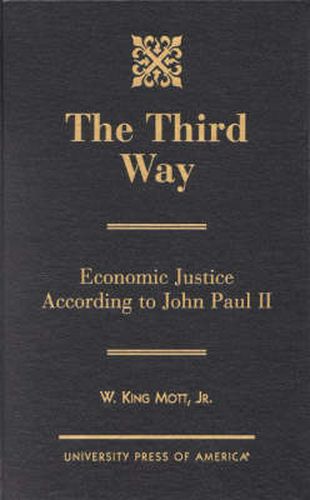Readings Newsletter
Become a Readings Member to make your shopping experience even easier.
Sign in or sign up for free!
You’re not far away from qualifying for FREE standard shipping within Australia
You’ve qualified for FREE standard shipping within Australia
The cart is loading…






The Third Way: Economic Justice According to John Paul II examines the Pope’s economic theory in a comprehensive form as an economic plan that responds to a Catholic definition of the human person. His ideas form four components: person, family, community, and salvation, that culminate in a vision for humanity that is both natural and just. He began to develop this as a young priest and applies to it the message of the New Testament and the revelation of Jesus Christ. This model translates the commandment of love or agape into the language of philosophical ethics, and examines how the plan has been applied in different parts of the world. In addition to presenting the Pope’s views, the author takes criticism of his views into consideration and points out the Pope’s discomfort with the standard approaches to economic justice through his criticism of both capitalism and communism. This book presents a comprehensive depiction of the development of the Pope’s economic theory, the third way, and his complex approach to the economic functioning of the world.
$9.00 standard shipping within Australia
FREE standard shipping within Australia for orders over $100.00
Express & International shipping calculated at checkout
The Third Way: Economic Justice According to John Paul II examines the Pope’s economic theory in a comprehensive form as an economic plan that responds to a Catholic definition of the human person. His ideas form four components: person, family, community, and salvation, that culminate in a vision for humanity that is both natural and just. He began to develop this as a young priest and applies to it the message of the New Testament and the revelation of Jesus Christ. This model translates the commandment of love or agape into the language of philosophical ethics, and examines how the plan has been applied in different parts of the world. In addition to presenting the Pope’s views, the author takes criticism of his views into consideration and points out the Pope’s discomfort with the standard approaches to economic justice through his criticism of both capitalism and communism. This book presents a comprehensive depiction of the development of the Pope’s economic theory, the third way, and his complex approach to the economic functioning of the world.